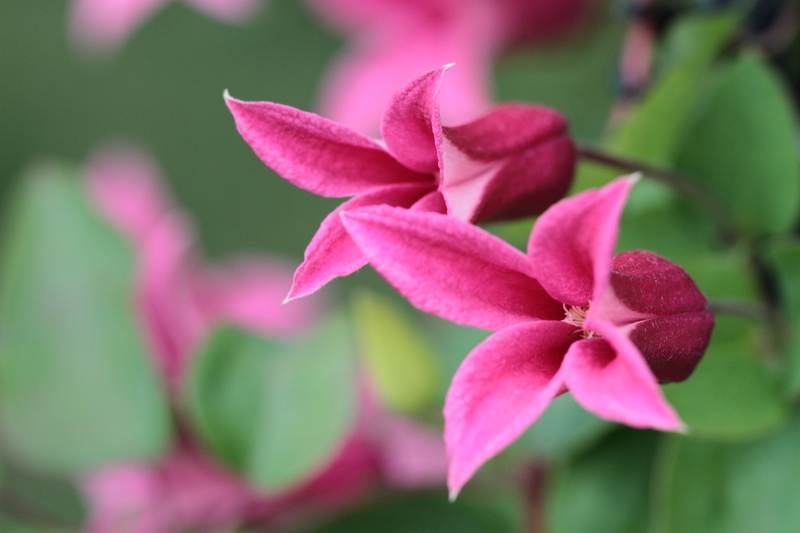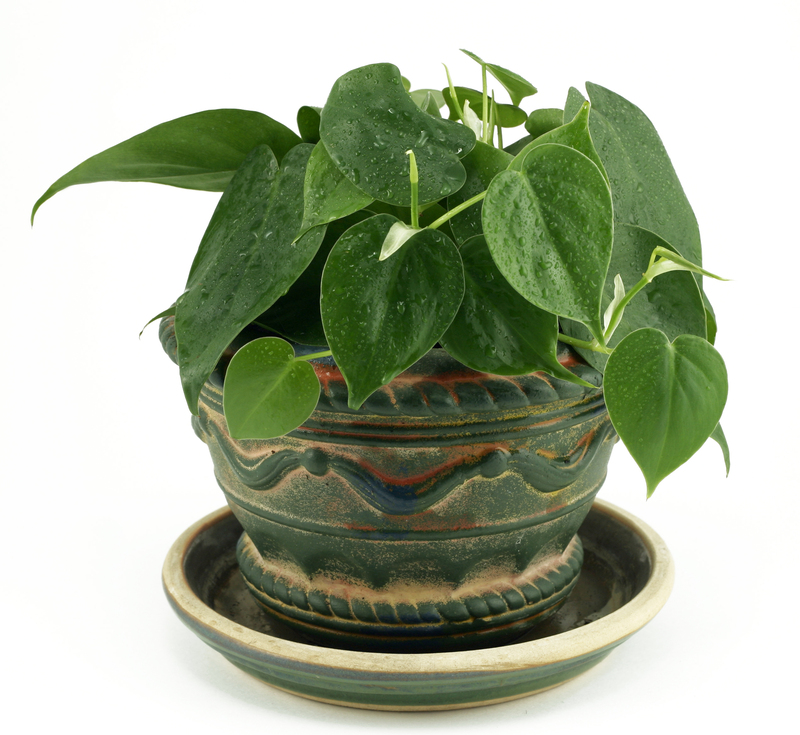Harnessing nature in compact forms: Container gardening
Posted on 29/08/2025
Harnessing Nature in Compact Forms: Container Gardening
Container gardening has emerged as a transformative trend for urban dwellers and passionate horticulturists alike. By creatively using limited spaces, container gardens bring a slice of nature into the smallest of settings, from city balconies to indoor windowsills.
What is Container Gardening?
Container gardening refers to growing plants exclusively in containers or pots rather than planting them in the ground. This method allows for maximum flexibility and creativity, enabling nature lovers to cultivate lush greenery, blooming flowers, flavorful herbs, and even small vegetables virtually anywhere.
Advantages of Container Gardening
- Space efficiency: Making gardening accessible for apartments and small patios.
- Design versatility: Allows you to rearrange, mix, and match plant displays as desired.
- Pest control: Elevating and isolating plants can help reduce pest problems.
- Soil and water management: Easier to control growing conditions in containers versus ground beds.
- Accessibility: Suitable for gardeners with limited mobility since containers can be raised to convenient heights.

Getting Started: Selecting Containers
The first step in creating a thriving container garden is picking the right vessels. Containers come in many shapes, sizes, and materials. Here are factors to consider:
- Material: Common options include ceramic, clay, plastic, metal, and wood. Each impacts moisture retention differently.
- Drainage: Always select containers with drainage holes to prevent root rot and waterlogging.
- Size: Choose pots that are large enough to allow roots to grow; cramped roots stunt plant development and reduce yields.
- Style: Harmonize pots with your decor, whether rustic terracotta for cottage vibes or sleek fiberglass for modern aesthetics.
Container Gardening Ideas for Small Spaces
- Utilize vertical gardening with stacked pots, trellises, and hanging baskets to make the most out of your area.
- Grow herbs in small pots on kitchen windowsills for both function and beauty.
- Use repurposed containers like old buckets, cans, or crates for eclectic charm and sustainability.
Choosing the Right Growing Medium
A successful container gardening endeavor relies heavily on soil quality. Ordinary garden soil is often too heavy and poorly aerated for pots. Instead, use a potting mix specially formulated for containers.
- Lightweight: Potting mixes ensure adequate drainage and root aeration.
- Nutrient-rich: Many contain slow-release fertilizers to nourish plants over time.
- pH-balanced: Look for mixes appropriate for your specific plants (e.g., acidic for blueberries, neutral for most vegetables).
Soil Amendments and Additives
Boost your container garden's health by mixing in:
- Perlite or vermiculite for added aeration.
- Compost for organic matter and nutrients.
- Coconut coir or peat moss to help retain moisture.
Best Plants for Compact Container Gardening
When it comes to harnessing nature in compact forms, plant selection is crucial. Some plants naturally thrive in contained environments:
- Herbs: Basil, mint, thyme, chives, oregano, and parsley grow well in pots and are great for culinary use.
- Vegetables: Tomatoes, peppers, lettuce, radishes, and dwarf beans are popular for productive container gardens.
- Flowers: Petunias, pansies, geraniums, and marigolds add vibrant color and attract pollinators.
- Succulents and cacti: Ideal for low-maintenance displays in bright, sunny spaces.
- Miniature fruit trees: Citrus, figs, and olives in dwarf varieties can be stunning and productive.
Tips for Selecting Plants
- Match the plant's sunlight requirements to the location (full sun, partial shade).
- Choose varieties labeled as "compact," "bush," or "dwarf" for best results in small spaces.
- Group plants with similar watering and feeding needs to simplify care.
Essential Tips for Thriving Container Gardens
Proper care and attention will ensure your container garden flourishes year-round. Consider these steps:
1. Watering Techniques
- Check soil moisture regularly; containers dry out faster than garden beds, especially in summer.
- Use self-watering pots or add a saucer to extend watering intervals.
- Water thoroughly until excess flows from drainage holes to ensure even root moisture.
2. Fertilizing Strategies
- Apply a balanced, slow-release fertilizer at planting time.
- Supplement with liquid feedings during the growing season for vegetables and flowering plants.
- Follow package instructions to prevent fertilizer burn.
3. Light and Temperature Considerations
- Most edible plants require six or more hours of direct sunlight.
- Indoors, place containers near south-facing windows or use grow lights.
- On hot days, move pots to shadier spots or provide light cloth coverings to prevent scorching.
4. Pruning and Maintenance
- Pinch back leggy growth to encourage bushier, healthier plants.
- Remove dead leaves and spent flowers for a tidy appearance and to prevent disease.
- Re-pot perennials when root-bound, generally every 2-3 years.
Innovative Container Gardening Techniques
Continue to push the boundaries of nature in confined spaces by trying these creative ideas:
Vertical Container Gardening
- Use wall-mounted planters, stacked pots, or DIY pallet gardens to grow upward rather than outward.
- Ideal for growing leafy greens, herbs, and trailing flowers.
Window Box Gardens
- Create lush displays under windows with combinations of colorful flowers and trailing vines.
- Mix ornamental and edible plants for beauty and functionality.
Hanging Gardens
- Suspended baskets and macrame holders allow you to maximize overhead space on balconies or in windows.
- Great for strawberries, trailing succulents, and ferns.
Tabletop Terrariums
- Enclosed glass containers support mini-ecosystems perfect for small succulents, mosses, and ferns.
- Easy to maintain and suitable for office desks or small apartments.
Overcoming Common Container Gardening Challenges
Despite its many benefits, compact container gardening comes with unique hurdles. Here's how to address the most common issues:
1. Overwatering and Underwatering
- Too much water can drown roots; too little leads to wilting. Aim for consistently moist, not soggy, soil.
- In hot weather, check pots daily.
2. Nutrient Deficiency
- Containers have limited soil, which depletes nutrients fast. Top up with balanced fertilizers regularly.
3. Root Bound Plants
- Plants may become "pot-bound" if roots fill the pot, stunting growth. Re-pot into larger containers as needed.
4. Pests and Diseases
- Monitor for aphids, spider mites, and fungal diseases. Act with organic sprays or remove affected foliage promptly.
Sustainable Practices for Container Gardeners
Nurturing nature in small forms also means caring for the planet. Make your compact container garden greener by:
- Upcycling containers to reduce waste and give new life to household items.
- Composting kitchen scraps to feed your plants naturally.
- Collecting rainwater for eco-friendly irrigation.
- Choosing organic seeds and soil amendments to bring more biodiversity into your garden.
Container Gardening Through the Seasons
Seasonal changes impact container plantings more severely than in-ground beds due to limited soil insulation:
Spring
- Begin sowing cool-season seeds like lettuce, spinach, and pansies.
- Refresh pots with new soil and cut back winter growth.
Summer
- Focus on sun-loving herbs, tomatoes, peppers, and annual blooms.
- Water more frequently and provide shade during heatwaves.
Autumn
- Switch to fall crops such as kale, chard, and ornamental cabbages.
- Decorate with mini pumpkins and mums for seasonal flair.
Winter
- Bring tender plants indoors or wrap pots to protect roots from freezing.
- Choose hardy evergreens for year-round color and structure.

Frequently Asked Questions About Container Gardening
- How often should you water container plants?
- Frequency depends on climate and plant type. In summer, daily watering may be necessary for small pots. Stick your finger an inch into the soil--if it feels dry, it's time to water.
- Can you reuse potting soil from last year?
- Yes, but refresh it by removing old roots, adding compost, and replacing a quarter to half of the mix with new potting soil to prevent disease and replenish nutrients.
- What are the easiest vegetables to grow in containers?
- Lettuce, spinach, radishes, cherry tomatoes, bush beans, and peppers are beginner-friendly for container gardens.
- Can container gardens be organic?
- Absolutely! Use organic potting mixes, fertilizers, and seeds--and avoid synthetic pesticides to grow organically in pots.
Conclusion: The Joy of Harnessing Nature in Compact Forms
Container gardening is much more than a trend--it's a celebration of creativity, sustainability, and connection to nature, no matter how limited your outdoor space. Whether you aspire to grow a few aromatic herbs on your kitchen ledge, a lush balcony garden bursting with flowers, or a mini vegetable plot on your patio, harnessing nature in compact forms opens up a world of possibilities right at your fingertips.
With the right containers, the best plants, quality soil, and attentive care, your container garden can flourish through every season. Start with a single pot and watch as your space transforms, one bloom at a time.
Ready to embark on your container gardening journey? Nature is waiting--just outside your door, on your windowsill, or wherever your imagination takes root!
Latest Posts
Raise the Bar with Stellar Orchid Care Techniques
Weed Control Mastery in 3 Essential Moves
Adapting Your Garden to Strong Wind Challenges

